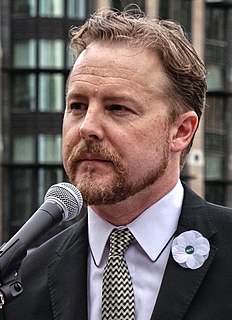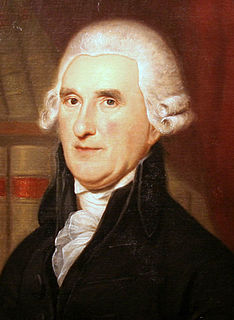A Quote by Oliver Ellsworth
Liberty is a word which, according as it is used, comprehends the most good and the most evil of any in the world. Justly understood it is sacred next to those which we appropriate in divine adoration; but in the mouths of some it means anything, which enervate a necessary government; excite a jealousy of the rulers who are our own choice, and keep society in confusion for want of a power sufficiently concentered to promote good.
Related Quotes
It is our duty to endeavor always to promote the general good; to do to all as we would be willing to be done by were we in their circumstances; to do justly, to love mercy, and to walk humbly before God. These are some of the laws of nature which every man in the world is bound to observe, and which whoever violates exposes himself to the resentment of mankind, the lashes of his own conscience, and the judgment of Heaven. This plainly shows that the highest state of liberty subjects us to the law of nature and the government of God.
Of all the human evils, of which we have thousands of years of record and our own contemporary experiences, the most horrible evil of all is hypocrisy. It's this idea that there are those who do bad and there are those who do good, when, in fact, even the people who supposedly do good are saying they do good to mask the fact that they do evil.
When one has once accepted and absorbed Evil, it no longer demands the unfitness of the means. The ulterior motives with which youabsorb and assimilate Evil are not your own but those of Evil.... Evil is whatever distracts. Evil knows of the Good, but Good does not know of Evil. Knowledge of oneself is something only Evil has. One means that Evil has is the dialogue.... One cannot pay Evil in installments--and one always keeps on trying to.
The human person, whose definition serves as the touchstone according to which good must be distinguished from evil, is considered as sacred, in what one might call the ritual sense of the word. It has something of that transcendental majesty which the churches of all times have given to their Gods.
Many of our miseries are merely comparative: we are often made unhappy, not by the presence of any real evil, but by the absence of some fictitious good; of something which is not required by any real want of nature, which has not in itself any power of gratification, and which neither reason nor fancy would have prompted us to wish, did we not see it in the possession of others.
Society in every state is a blessing, but government even in its best state is but a necessary evil; in its worst state an intolerable one; for when we suffer, or are exposed to the same miseries by a government, which we might expect in a country without government, our calamity is heightened by reflecting that we furnish the means by which we suffer.
The true liberty of the press is amply secured by permitting every man to publish his opinion; but it is due to the peace and dignity of society, to inquire into the motives of such publications, and to distinguish between those which are meant for use and reformation, and with an eye solely to the public good, and those which are intended merely to delude and defame. To the latter description, it is impossible that any good government should afford protection and impunity.
Special care should be taken of the health of the inhabitants, which will depend chiefly on the healthiness of the locality and of the quarter to which they are exposed, and secondly on the use of pure water; this latter point is by no means a secondary consideration. For the elements which we use the most and oftenest for the support of the body contribute most to health, and among those are water and air. Wherefore, in all wise states, if there is want of pure water, and the supply is not all equally good, the drinking water ought to be separated from that which is used for other purposes.
There is not any present moment that is unconnected with some future one. The life of every man is a continued chain of incidents, each link of which hangs upon the former. The transition from cause to effect, from event to event, is often carried on by secret steps, which our foresight cannot divine, and our sagacity is unable to trace. Evil may at some future period bring forth good; and good may bring forth evil, both equally unexpected.
A free mind is one which is untroubled and unfettered by anything, which has not bound its best part to any particular manner of being or worship and which does not seek its own interest in anything but is always immersed in God's most precious will. . . . There is no work which men and women can perform, however small, which does not draw from this its power and strength.
You and I are, by birth, by nature, and by choice, inwardly depraved, which is to say that we are entirely corrupt. That's not to say that we have no good in us; we do. However, anything good in us has been tainted with evil. It touches everything. Without the redeeming power of Christ we cannot halt our own moral slide.



































